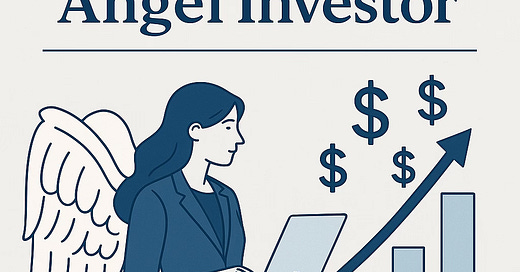Inside the Mind of an Angel Investor
Discover how angel investors pick winners, why they matter more than ever, and what every founder should know before pitching.
Dear Readers,
Welcome to the latest edition of the HealthVC newsletter. Today, we’re pulling back the curtain on a key player in the startup ecosystem: the Angel Investor. These individuals often make the difference between a great idea staying on the shelf and a world-changing product coming to life. More than just check-writers, angel investors bring v…



